
Ronald Martin Popeil, was an American inventor and marketing personality, and founder of the direct response marketing company Ronco. He made appearances in infomercials for the Showtime Rotisserie and coined the phrase "Set it, and forget it!" as well as popularizing the phrase, "But wait, there's more!" on television as early as the mid-1950s.
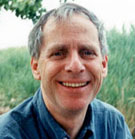
Amos Nathan Tversky was an Israeli cognitive and mathematical psychologist and a key figure in the discovery of systematic human cognitive bias and handling of risk.
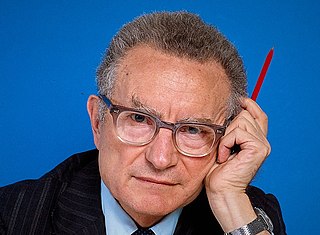
Paul Anthony Samuelson was an American economist who was the first American to win the Nobel Memorial Prize in Economic Sciences. When awarding the prize in 1970, the Swedish Royal Academies stated that he "has done more than any other contemporary economist to raise the level of scientific analysis in economic theory".
In marketing, the unique selling proposition (USP), also called the unique selling point, or the unique value proposition (UVP) in the business model canvas, is the marketing strategy of informing customers about how one's own brand or product is superior to its competitors.

Malcolm Timothy Gladwell is an English-born Canadian journalist, author, and public speaker. He has been a staff writer for The New Yorker since 1996. He has published seven books. He is also the host of the podcast Revisionist History and co-founder of the podcast company Pushkin Industries.

Blink: The Power of Thinking Without Thinking (2005) is Malcolm Gladwell's second book. It presents in popular science format research from psychology and behavioral economics on the adaptive unconscious: mental processes that work rapidly and automatically from relatively little information. It considers both the strengths of the adaptive unconscious, for example in expert judgment, and its pitfalls, such as prejudice and stereotypes.
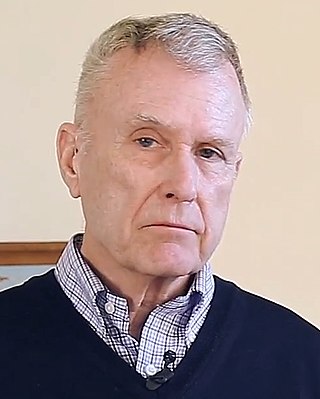
Richard Eugene Nisbett is an American social psychologist and writer. He is the Theodore M. Newcomb Distinguished Professor of social psychology and co-director of the Culture and Cognition program at the University of Michigan at Ann Arbor. Nisbett's research interests are in social cognition, culture, social class, and aging. He received his Ph.D. from Columbia University, where his advisor was Stanley Schachter, whose other students at that time included Lee Ross and Judith Rodin.
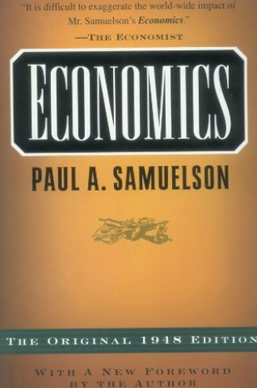
Economics is an introductory textbook by American economists Paul Samuelson and William Nordhaus. The textbook was first published in 1948, and has appeared in nineteen different editions, the most recent in 2009. It was the bestselling economics textbook for many decades and still remains popular, selling over 300,000 copies of each edition from 1961 through 1976. The book has been translated into forty-one languages and in total has sold over four million copies.
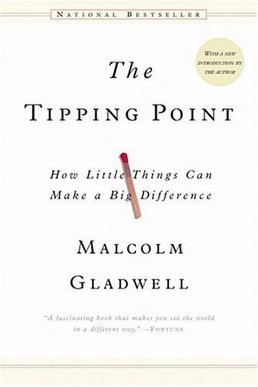
The Tipping Point: How Little Things Can Make a Big Difference is the debut book by Malcolm Gladwell, first published by Little, Brown in 2000. Gladwell defines a tipping point as "the moment of critical mass, the threshold, the boiling point." The book seeks to explain and describe the "mysterious" sociological changes that mark everyday life. As Gladwell states: "Ideas and products and messages and behaviors spread like viruses do." The examples of such changes in his book include the rise in popularity and sales of Hush Puppies shoes in the mid-1990s and the steep drop in New York City's crime rate after 1990.

Outliers: The Story of Success is the non-fiction book written by Malcolm Gladwell and published by Little, Brown and Company on November 18, 2008. In Outliers, Gladwell examines the factors that contribute to high levels of success. To support his thesis, he examines why the majority of Canadian ice hockey players are born in the first few months of the calendar year, how Microsoft co-founder Bill Gates achieved his extreme wealth, how the Beatles became one of the most successful musical acts in human history, how two people with exceptional intelligence—Christopher Langan and J. Robert Oppenheimer—end up with such vastly different fortunes, how Joseph Flom built Skadden, Arps, Slate, Meagher & Flom into one of the most successful law firms in the world, and how cultural differences play a large part in perceived intelligence and rational decision making. Throughout the publication, Gladwell repeatedly mentions the "10,000-Hour Rule", claiming that the key to achieving world-class expertise in any skill, is, to a large extent, a matter of practicing the correct way, for a total of around 10,000 hours, though the authors of the original study have disputed Gladwell's usage.
Mitigated speech is a linguistic term describing deferential or indirect speech inherent in communication between individuals of perceived High Power Distance which has been in use for at least two decades with many published references.
A teachable moment, in education, is the time at which learning a particular topic or idea becomes possible or easiest.
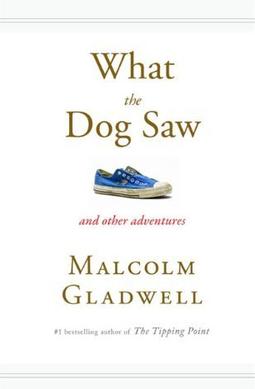
What the Dog Saw: And Other Adventures is the fourth book released by author Malcolm Gladwell, on October 20, 2009. The book is a compilation of the journalist's articles published in The New Yorker.

Drive: The Surprising Truth About What Motivates Us is a non-fiction book written by Daniel Pink. The book was published in 2009 by Riverhead Hardcover. It argues that human motivation is largely intrinsic and that the aspects of this motivation can be divided into autonomy, mastery, and purpose. He argues against old models of motivation driven by rewards and fear of punishment, dominated by extrinsic factors such as money.
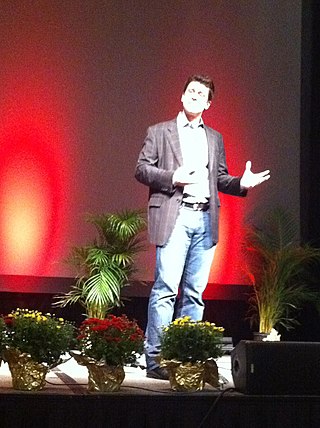
Dan Heath is an American bestselling author, speaker and fellow at Duke University's CASE center. He, along with his brother Chip Heath, has co-authored four books, Made to Stick: Why Some Ideas Survive and Others Die (2007), Switch: How to Change Things When Change Is Hard (2010), Decisive: How to Make Better Choices in Life and Work, and The Power of Moments: Why Certain Experiences Have Extraordinary Impact (2017). Heath released his first solo work, Upstream: The Quest to Solve Problems Before They Happen, in 2020.
Chip Heath is an American academic. He is the Thrive Foundation for Youth Professor of Organizational Behavior at the Stanford Graduate School of Business, and the co-author of several books.

Talking to Strangers: What We Should Know about the People We Don't Know is a nonfiction book written by Malcolm Gladwell and published by Little, Brown and Company on September 10, 2019. The audiobook version of the book follows Gladwell's Revisionist History podcast-style structure, using Gladwell's narration, interviews, sound bites, and the theme song "Hell You Talmbout".

Range: Why Generalists Triumph in a Specialized World is a 2019 book by David Epstein in which he expands on the points from his previous book The Sports Gene: Inside the Science of Extraordinary Athletic Performance to make a more general argument against overspecialization. In the book, he argues that range – defined as more diverse experience across multiple fields – is more relevant in today's society than specialization because the wicked problems of the modern world require bridging experience and knowledge from multiple fields to foster solutions.
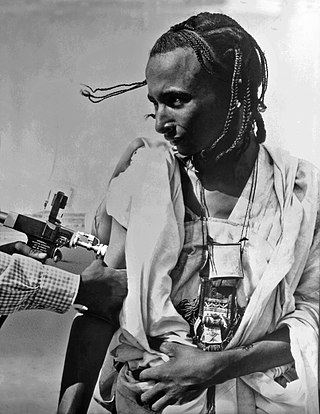
Success is the state or condition of meeting a defined range of expectations. It may be viewed as the opposite of failure. The criteria for success depend on context, and may be relative to a particular observer or belief system. One person might consider a success what another person considers a failure, particularly in cases of direct competition or a zero-sum game. Similarly, the degree of success or failure in a situation may be differently viewed by distinct observers or participants, such that a situation that one considers to be a success, another might consider to be a failure, a qualified success or a neutral situation. For example, a film that is a commercial failure or even a box-office bomb can go on to receive a cult following, with the initial lack of commercial success even lending a cachet of subcultural coolness.

The Bomber Mafia: A Dream, a Temptation, and the Longest Night of the Second World War is a 2021 book by Malcolm Gladwell that examines the US Bomber Mafia of World War II, which advocated precision aerial bombing as a means to win a war. Gladwell stated the audiobook for The Bomber Mafia came about as an expansion of material from his podcast Revisionist History, and that the print book originated from the audiobook. The book follows the Bomber Mafia, especially Major General Haywood S. Hansell, and the development of a high-altitude precision aerial bombardment strategy in World War II as a means to limit casualties. After difficulties in applying the Bomber Mafia's theoretical strategy, Major General Hansell was replaced by Major General Curtis LeMay, who utilized tactical changes such as attacking Japanese population centers with napalm to ensure a Japanese surrender. Upon release, The Bomber Mafia was met with mixed reviews, with reviewers praising its audiobook version but criticizing the book for a lack of detail and factual accuracy.
















